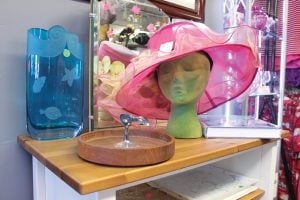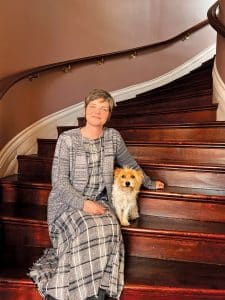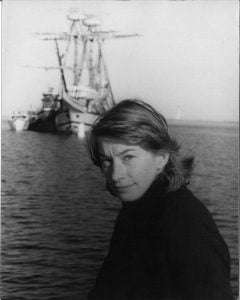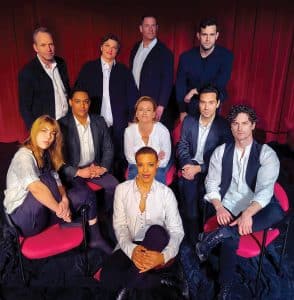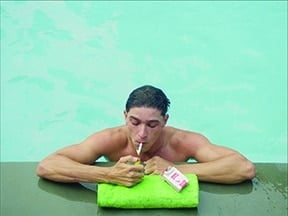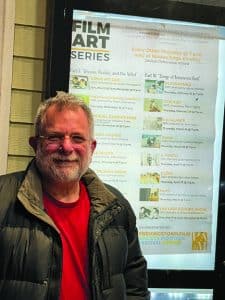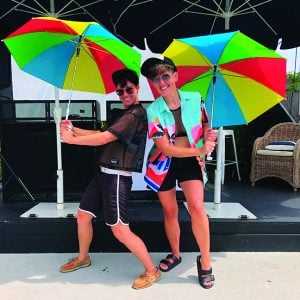by Steve Desroches
TOP IMAGE: Photo: Sarah Walker
Two guys at Kohi Coffee strain their necks to get a closer look, trying to be covert. One shakes his head to the other in affirmation. It is him. They both smile as they leave with their iced drinks heading out into the bright summer sunshine bathing Commercial Street in the unmistakable light of the season. Ever since Netflix released his semi-autobiographical show Special in April, Ryan O’Connell’s life has been in overdrive. The show about a gay man with cerebral palsy seeking love, sex, independence, and self-confidence was a big hit, so much so that it even surprised O’Connell. He went from a hard-working television writer to appearing on The Daily Show and The RuPaul Show as well as being the subject of stories in the New York Times, Variety, and GQ. It’s been as thrilling as it has been exhausting. But now he’s sitting down to enjoy his iced NoLA latte, reveling in his own celebrity sightings that morning—Andrew Sullivan and Leslie Jordan—while unaware that he just became the “guess who I saw in Provincetown” story for the two men at the coffee shop.
“It’s been kind of crazy,” says O’Connell. “I didn’t think anyone was going to care. I’ve been in this business long enough to know you can’t predict anything.”
Born and raised in southern California, O’Connell wrote I’m Special: And Other Lies We Tell Ourselves, his 2015 memoir about his life as a young gay man with cerebral palsy. As a celebrated blogger, his work got him the attention to get his book deal, particularly after his column “Coming Out of the Disabled Closet” appeared on the website Thought Catalog. In it, and later in his book, he writes about coming out as gay at 17, but how it took much longer to come out as disabled, an identity he not only resisted, but concealed.
At 20 he was injured when he was hit by a car. Less than a year later he moved to New York City where his new friends assumed his limp was from the accident. He didn’t correct them. But later he learned that having cerebral palsy was part of who he was, and denying it proved to be as emotionally burdensome as any type of closet people can shut themselves in. Soon after his story was published, Jim Parsons, star of The Big Bang Theory, optioned the book via That’s Wonderful Productions, the company he runs with his husband Todd Spiewak. He was on his way. Or so he thought. Getting the show made turned out to be “a troll, a hideous troll.” He and Parsons really connected, but after meeting with six cable networks and getting lots of “yeah, yeah, yeah,” but then nothing, O’Connell became mired in the Hollywood pit of phonies and the blank stares of the “money people” who just didn’t get it. A character that is gay AND disabled?!
“It was 2015 and people were just realizing that Hollywood was racist and sexist,” says O’Connell. “So gay and disabled was long down on the list of marginalized voices to be heard. They were not ready for this jelly.”
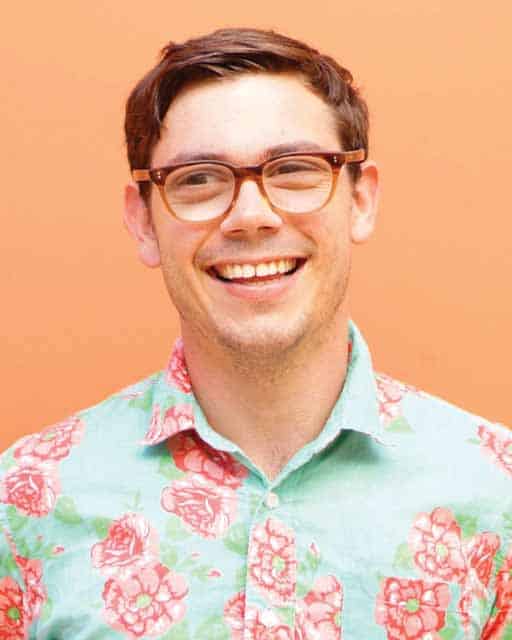
Hollywood needs to be told what it wants, says O’Connell. Someone succeeds and then there is a feeding frenzy to replicate that everywhere else. But people like Lena Dunham and Mindy Kaling, the creators and stars of Girls and The Mindy Project respectively, are held up as role models of how to get your own non-traditional story not only told, but sold in Hollywood. It took four years from start to finish for O’Connell, but eventually Netflix came calling, and it was as if the flood gates opened with opportunity, and more importantly creative freedom. The Internet-streaming company let O’Connell do whatever he wanted—no censorship, no restrictive corporate suits taking red pens to the script, no dulling focus groups. The eight-episode show that resulted proved to be as groundbreaking as it was funny and tender.
Special presented a story really never told before, presenting someone with a disability with complete humanity, including having the character of Ryan not only having a sexuality, but also having actual sex and be the object of sexual desire himself. O’Connell loves to whack at unnecessary taboos like a jungle explorer clearing a path through the thick foliage of ignorance and puritanism with a machete. Sex between people of the same sex is so rarely presented in media, contributing to stigma and shame, which is why in Special it was legs up in the air when it came to the scene when Ryan visits a sex worker to finally lose his virginity. While the scene depicting anal sex resonated with fans of the show and garnered lots of attention, it was done in such a manner that it didn’t overtake the story within—of learning to love yourself and encouraging others to do the same. His show also has an edge, too. In an era when we have a President who mocked a reporter from the New York Times with a disability, this kind of representation matters all the more.
“In times of strife art matters even more,” says O’Connell. “And my little punk rock show can act as a personal f**k you to Trump. It’s time to get louder and louder.”
O’Connell takes a deep breath and looks out the window, taking in another glance at Provincetown Harbor, which is sparkling in the July sun. His voice is glazed in kindness and enthusiasm, even when speaking about frustrating and dark times. It’s his spirit and nature, but also, it’s Provincetown. He’s got it bad for the town. The look in his eyes and the way his voice lifts when speaking about it is the familiar energy of someone who is completely under Provincetown’s spell.
He first came to town about six years ago as a side trip after giving a talk at Emerson College in Boston about his work at Thought Catalog. It was October and he made a point to come not just because it’s a famous hot spot for the LGBT community, but because of his love for the work of Cookie Mueller, John Waters, and Nan Goldin, all of whom of course are giants in the town’s creative cultural history. But that time he visited with his dad. And the next several times were either with his family or straight friends. Lately he’s been coming every summer with his gaggle of gay friends, renting the same house on Central Street. Increasingly the town works its way into his work, and if he could figure out budget constraints, someday it might be the setting of a future project. But for now, he and his friends are planning to hit happy hour at the Red Inn then drop in to Fag Bash and the Porchside Bar that night after dinner at 9 Ryder, that is after a little more caffeine to shake off the hangover from partying last night at The Club.
“Provincetown is the perfect example of how different people can exist in harmony,” says O’Connell. “You can be yourself here, in every way. I’m an anxious person anyway, but that washes away here. You don’t feel self-conscious here. This is kind of a choose-your-own-adventure town. There’s nowhere you’re supposed to be. Wherever you are is where you’re supposed to be.”
The entire first season of Special is available on Netflix.

